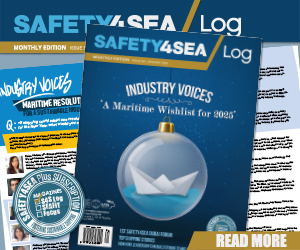According to the STCW, any level of alcohol consumption by crew members on board a ship has implications for the safety of the vessel, the crew and any passengers. Even small quantities of alcohol have been shown to sufficiently impair judgment and increase the risk of accidents.
As per IMO STCW, companies are required to implement a clearly stated alcohol policy while many are those shipowners who have enforced a stringent no alcohol ban on board due to the evident safety danger that alcohol consumption poses.
In particular, STCW 1978, as amended in June 2010 (“the Manila amendments”) brought in new provisions on fitness for duty – alcohol limits, introducing mandatory alcohol limits within STCW Regulation VIII/1 (Fitness for Duty) of 0.05% for blood and 0.25 mg/l for breath.
Effects of alcohol abuse on seafarers
Alcohol impairs cognitive functions and coordination, which are crucial for safe operation of a ship and response to emergencies. Seafarers under the influence are more prone to accidents, both onboard and during port operations, endangering their own lives, the lives of their crewmates, and the environment.
What is more, long-term alcohol abuse can lead to serious health problems like liver damage, cardiovascular issues, mental health disorders, and addiction.
Alcohol vs wellness: Key considerations
On the other hand, alcohol has been correlated with wellness onboard, from the perspective of distraction to stressful factors associated with the increased workload and isolation onboard. A study conducted as part of ISWAN’s Social Interaction Matters (SIM) project identified ‘No alcohol onboard’ as a main barrier to social interaction onboard, with respondents seeing an occasional beer or wine as a small step that could make a big change. How can we achieve a fine balance onboard that ensures the safety of the crew without compromise?
An alcohol-free ship definitely provides a safer working environment. The advantages of an alcohol policy are the protection of the welfare of employees, shipboard safety and the environment by reducing the risk and cost of accidents caused by impaired judgement.
However, taking into consideration a seafarer’s lifestyle, we could argue that drinking, similar to smoking, is being seen as a way to relieve from stress, overcome loneliness and boost confidence for the introverts who wish to be more involved in recreation activities onboard.
At a time when studies one after another unveil a continuous rise in seafarers’ anxiety levels and suicidal thoughts, a glass of wine or a beer facilitates communication by making us all a lot easier to talk to.
Alcohol & safety onboard
Meanwhile, we cannot oversee the fact that fatigue has a similar impact to the effects of drinking alcohol, in its ability to slow responses and cause people to make mistakes. Although the issue of excessive alcohol consumption onboard has now been “addressed,” seafarers are still struggling with fatigue on a daily basis, despite provisions made within the STCW and MLC to help regulate excessive work hours.
In that regard, shipping companies have a responsibility to ensure the health and safety of their crew members by providing guidance and support to prevent drug and alcohol abuse. OCIMF has recently published updated information to provide guidance on how to manage the risks with the use of alcohol onboard.
Overall, a bigger emphasis on prevention is necessary to better address this problem. This includes increasing awareness of the dangers of alcohol abuse among seafarers, providing education and training and promoting a culture of drug and alcohol-free work environments.
A campaign developed and delivered by the UK charity Alcohol Change UK encourages people to participate in the ‘Dry January’ challenge, abstaining from alcohol for all 31 days of January. This initiative is particularly timely after the festive season, which spans from Thanksgiving to New Year’s, a period when many of us tend to indulge more than usual.
For seafarers, committing to Dry January can bring numerous meaningful benefits, including improved physical health, enhanced mental clarity, and a renewed sense of discipline—an essential quality for life at sea. By taking a break from alcohol, seafarers may notice better sleep quality, increased energy levels, and improved overall well-being, all of which can positively impact their performance and safety on board.
Additionally, participating in Dry January can serve as a way to reset habits, foster healthier routines, and provide an opportunity for self-reflection and personal growth during the often demanding and isolating nature of maritime work.
































































